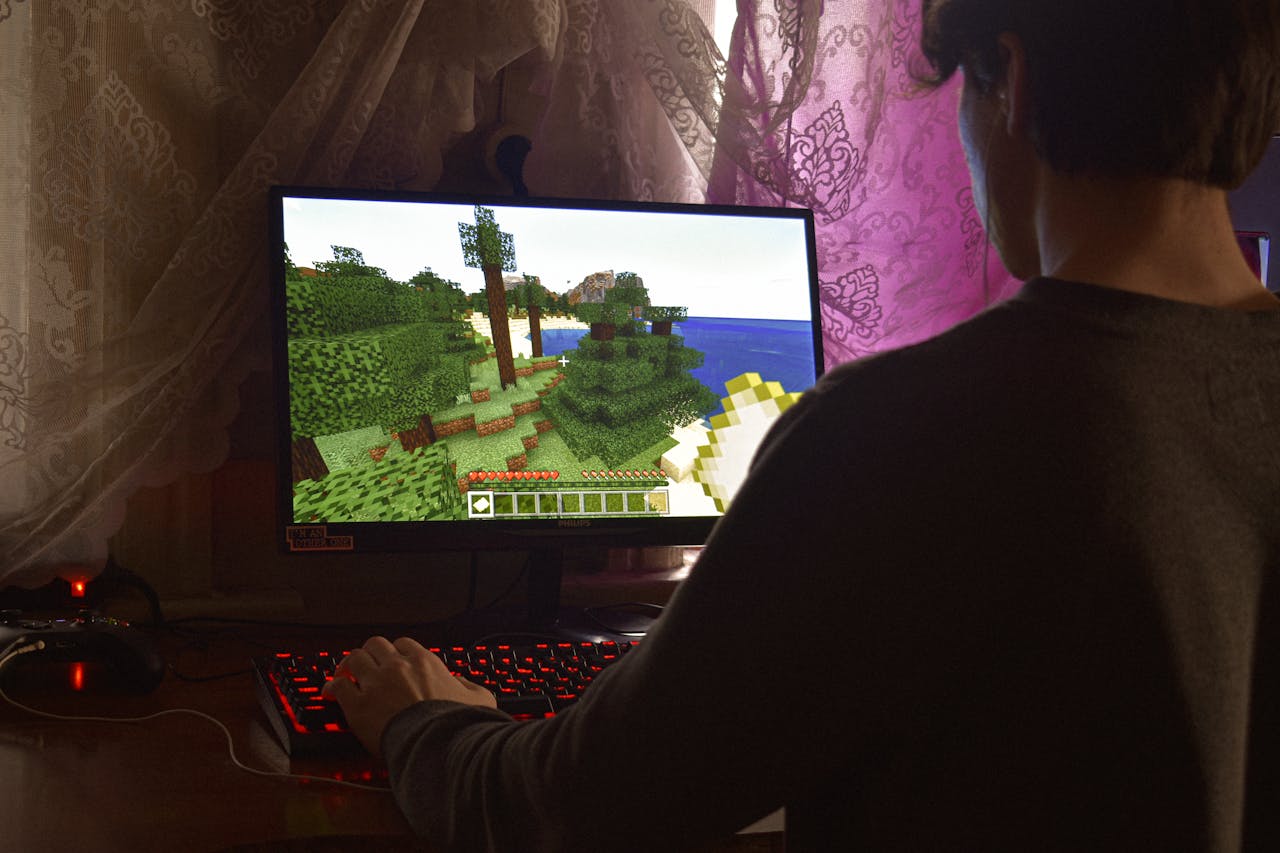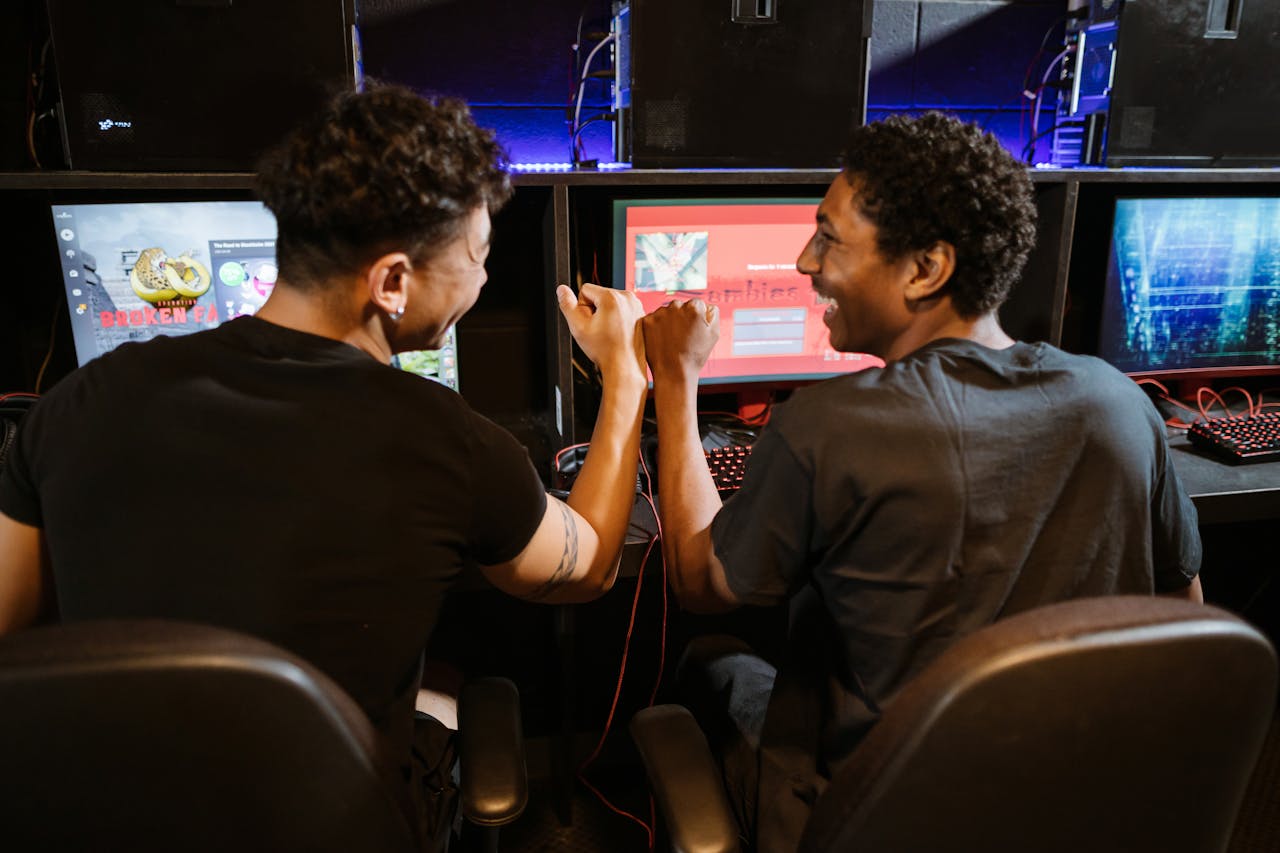Do You Speak the Language?
Being fluent in video games may sound like a joke—but real gamers know there’s a lingo to the virtual world. If you’ve spent time online, you’re bound to see acronyms and references that make more sense the longer you linger. Put your knowledge to the test—do you know these 20 game terms?
 Photo by Mikhail Nilov on Pexels
Photo by Mikhail Nilov on Pexels
1. Smurfing
A level system often ensures new players aren’t put on the same playing field as experienced players—which not only makes the game more fun—but balanced too. However, when someone is smurfing, it means they’re an experienced player playing on lower-level accounts. For beginner players, this adds an unfair challenge.
2. OP
OP simply stands for overpowered. Unless you’re on Reddit—then it stands for original poster. But in the gaming universe, when something or someone is OP, it means they’re way too strong!
 Photo by cottonbro studio on Pexels
Photo by cottonbro studio on Pexels
3. Tilted
Tilted, or weak mental, are the terms used for players who are letting negative things in the game affect them. These people get annoyed when things don’t go their way, and that often affects their gameplay, leading to quite a downward spiral.
4. Running it Down
When someone has become tilted or angry, they may react by running it down. Made most popular in the game League of Legends, running it down refers to players that give up and start sabotaging their own team.
 Photo by Erik Mclean on Pexels
Photo by Erik Mclean on Pexels
5. Clutch
When someone secures a tight victory, it’s considered clutch. Similar to saying “he came in clutch,” this term offers praise and appreciation and is often reserved for players who make a major difference.
6. GG
GG simply stands for good game, but the intentions might not be as friendly as you think. Like most things, gamers take it to the extreme and will often spam GG or use it ironically to diminish the other team’s efforts.
 Photo by Matilda Wormwood on Pexels
Photo by Matilda Wormwood on Pexels
7. Noob
Noob or newb—however you choose to spell it—refers to someone who is a beginner at the game. This can be seen as an insult or simply an observation. Some gamers may declare themselves a noob to let other players know to take it easy on them.
 Photo by Tima Miroshnichenko on Pexels
Photo by Tima Miroshnichenko on Pexels
8. NPC
NPC stands for non-playable character, and it refers to the many side characters in video games that offer dialogue and quests but don’t have actual player agency. When used in real-life contexts, calling somebody an NPC means they lack human agency and simply exist to serve the main character.
 Photo by Mister Mister on Pexels
Photo by Mister Mister on Pexels
9. Cheese
In gaming contexts, cheesing refers to exploiting a bug or a game mechanic to get an unfair advantage. While not necessarily against the rules, gamers tend to have little respect for those who cheese.
 Photo by Jaroslav Nymburský on Pexels
Photo by Jaroslav Nymburský on Pexels
10. Toxic
Toxic refers to players that act negatively and aggressively, in turn making the entire experience horrible for all the players involved. A lot of women have faced toxic attitudes when trying to partake in games, but even the best gamers aren’t safe from the toxicity.
 Photo by Andrea Piacquadio on Pexels
Photo by Andrea Piacquadio on Pexels
11. Broken
This term is simple enough and is used to describe a bug or glitch that is essentially a broken part of the game. Lots of players exploit these broken parts to achieve an unfair advantage. It’s similar to OP but is seen as an issue that must be fixed.
 Photo by Florenz Mendoza on Pexels
Photo by Florenz Mendoza on Pexels
12. Hitbox
Whether you play Minecraft or Dota, a hitbox is universally known as an indicator of how close you can get to someone or something before being in their range of attack. This is a mechanic that all players need to understand to be able to effectively play.
 Photo by John Petalcurin on Pexels
Photo by John Petalcurin on Pexels
13. PVP
PVP stands for player versus player and is the opposite of PVE, which stands for player versus environment. In PVP environments, your enemies will be other players. Alternatively, in PVE environments, your enemies will be NPCs.
 Photo by MART PRODUCTION on Pexels
Photo by MART PRODUCTION on Pexels
14. Grind
In role-playing and survival games, grinding refers to the act of spending hours doing a repetitive action to collect resources. Think of chopping trees in Stardew Valley, or mining for metal in ARK: Survival Evolved. Usually, it is a dull task that is necessary to progress in the game.
 Photo by Alexander Kovalev on Pexels
Photo by Alexander Kovalev on Pexels
15. Fetch Quest
Known throughout the role-playing community, a fetch quest is a common and boring quest given out to players. It typically involves finding and returning an item and is seen as lazy. Most gamers prefer variety in their quests.
16. Carry
Carry is a title given to the most valuable player in a game. Typically used in PVP, when someone carries the game, it means they singlehandedly win the game for their team, or at least do the most.
 Photo by Tima Miroshnichenko on Pexels
Photo by Tima Miroshnichenko on Pexels
17. EZ
If you say it out loud, letter by letter, it’s clear to see that EZ stands for easy. Of course, why would gamers type out four letters if two will do? Usually spammed in the chats at the end, calling a game EZ is seen as a way to insult the losing team.
 Photo by Mikhail Nilov on Pexels
Photo by Mikhail Nilov on Pexels
18. Gank
Typically used in MOBA (multiplayer online battle arena) games, gank refers to an ambush or team-oriented attack on unsuspecting players. For example, if a player on your team is struggling against their opponent, they may ask for a gank.
 Photo by RDNE Stock project on Pexels
Photo by RDNE Stock project on Pexels
19. RNG
In card games and gacha games, RNG stands for random number generator, and in gaming contexts, this refers to randomness. For example, if someone says the “RNG is in your favor,” they’re calling you lucky.
 Photo by Alena Darmel on Pexels
Photo by Alena Darmel on Pexels
20. Lag
Lag and FPS are commonly called out in game chats to excuse poor gameplay. They refer to dips in a computer’s performance and can be the most frustrating part of the gaming experience. There’s nothing like closing in on the enemy only for your screen to freeze up for thirty seconds when you lag.












